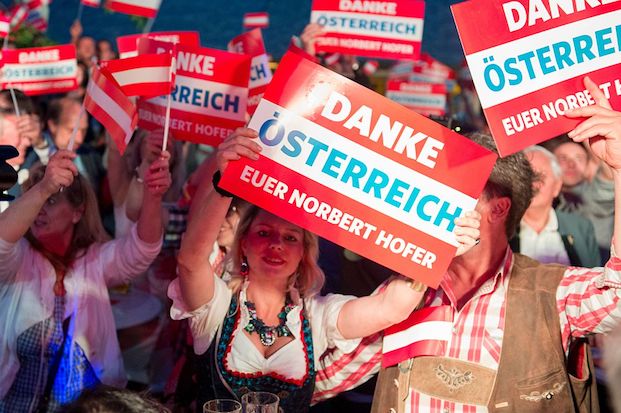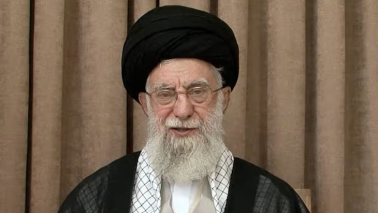Last year’s Austrian presidential election looked like a turning point for the European Union. Alexander Van der Bellen, a soft left Eurofederalist (narrowly) defeated Eurosceptic Norbert Hofer, of the hard right Austrian Freedom Party, and Continental Europhiles went into 2017 with fresh hope that they might halt the tidal wave of Brexit, before it engulfed the EU.
Sure enough, this year France and Holland have both returned Europhile candidates, and Germany looks set to follow suit. The tide had turned, the pundits said. 2016 had been the high water mark of Populism. 2017 would be the year the EU fought back.
However, the tide in Europe may now be about to turn again, and once again the latest sea change is in Austria – a country where the president is a cuddly Green Party champion, yet the most popular party is far right. After ruling since 2013, Austria’s centrist coalition has collapsed, prompting a national election this October, a year ahead of schedule. The result could be a huge headache for the Austrian (and EU) establishment, with the ‘wrong’ party on course to win the biggest share of the vote.
For once, the arithmetic is fairly simple. In 2013, Austria’s three main parties split the vote more or less equally between them, all ending up way short of the required majority of 92 seats. The Social Democrats got 52 seats, the centre right Austrian People’s Party got 47, and the far right Freedom Party got 40. The Social Democrats and the People’s Party united to keep the Freedom Party out, and that was that. Until now. Now that partnership has broken down and a general election is surely the last thing these two centrist parties need.
In 2013, those two centrist parties could claim a democratic mandate as Austria’s two biggest parties, but the Freedom Party have been ahead in the polls for two years now, and look certain to increase their share of votes (and seats) in October. If that happens, it’ll be a lot harder to keep them out of government. A Freedom Party chancellor would be a PR catastrophe for Austria. Even a Freedom Party coalition would be hugely controversial.
It’s happened before. In 2000, the People’s Party teamed up with the Freedom Party and Austria was ostracised by its neighbours. But seventeen years later, several of these neighbours have changed. Freedom Party politicians are still persona non grata in Western Europe, but in Eastern Europe it’s a different story. Poland and Hungary in particular now have right wing governments with similar attitudes to immigration. A Freedom Party government could build bridges with these ‘Visegrad’ nations, and widen the growing gulf between Eastern and Western Europe.
Britons tend to regard Austria as a Western European nation – but that has always been a fallacy (personally, I blame The Sound of Music). Occupied by the Russians after WWII and neutral throughout the Cold War, modern Austria is merely the German speaking rump of a vast polyglot Reich that included Hungary and Czechoslovakia and much of Poland, Romania and the Balkans. Oesterreich means Eastern Empire. Vienna is further east than Prague. Austrians speak the same language as the Germans – yes, they even watch the same TV channels – but their cultural history is much more bound up with Eastern European nations like Hungary. And if October’s election corresponds to current polls, their future politics might be too.






Comments